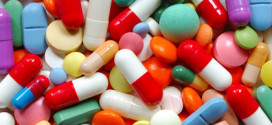So what is a healthy diet?
Ever since we were young, we have been told to eat healthy, to eat this, to avoid that etc… but really, what is a healthy diet? What’s it made of?
There are three macro-nutrients which we must get from each of the main meals. No matter what anyone tells you, you will NOT be eating healthy if you’re not getting them.
Firstly, Carbohydrates, which the body needs for cell respiration. Carbohydrates provide your body with 4 kilocalories per gram and are rich in these sources are: Bread, Cereals, Potatoes, Rice, Pasta, Noodles, Maize, Sweets, Beans, Pulses, Fruit, Vegetables.
Secondly, Protein, which the body needs for growth and repair. Again, just like carbohydrates, these provide your body with 4 kilocalories per gram and are rich in these sources are: Meat, Poultry, Fish, Eggs, Beans, Pulses, Milk, Cheese, Yoghurt, Fromage frai.
Finally, Fat, and despite popular belief, your body needs fat to function properly. It uses it as a long term store and fuel for cells respiration and metabolism. As you would assume, these provide your body with 9 kilocalories per gram, which is over double what either of the other two macro-nutrients provide the body. Food sources which are rich in fat are: Oils, Butter, Margarine, Dressing, Cream, Chocolate, Crisps, Cakes, Biscuits, Puddings, Ice Crea.
In the UK, dietary recommendations are published in “Dietary Reference Values (DRVs) for Food Energy and Nutrients for the United Kingdom.“and simplified here. This acts as a useful guide to the nutritional requirements of healthy people since it focus on optimal health needs rather then prevention of deficiency.
From the Dietary Reference Values, it is recommended that a healthy person should be getting 35% of their energy from Fat food sources, 50% from carbohydrate sources and 15% from protein sources. This should also be supplemented by at least 18 grams a day of Non-starch Polysaccharides and no more than 6 grams of salt a day.
Types of Fat
A fat molecule is a long hydrocarbon chain which may contain double bonds.
| Fatty acids | DoubleBonds | Source |
| Saturated | none | butter, palm oil |
| Monounsaturated | one | olive oil, rapeseed oil |
| Polyunsaturated | more | sunflower oil, soybean oil |
Hydrogenation is the process of breaking these double bonds which can be potentially harmful since Trans Fats are created in the process.
All of the above can be represented graphically for you to show you what all these numbers mean. The Food Standards Agency has created the Eatwell Plate to demonstrate what we should be eating in a healthy diet.
The components of it are explained in a bit more depth over here so you should give it a read.
Now if we look at the micro-nutrients which are things the body needs and uses in small amounts. We have Vitamins (Fat and water soluble), Minerals (Major and minor), Fibre and most importantly water!
I will be writing a full article discussing vitamins and how they should be used, but in the meantime, below I put a brief summery of what you should be having and where to get it from:
Fat Soluble Vitamins:
| Vitamin | Name | Source(eg) |
| A | Retinol | dairy, egg, fish, liver,vegetables |
| D | Cholecalciferol | [sunshine] fish, egg |
| E | Tocopherol | vegetables |
| K | Quinone | vegetables |
Water Soluble Vitamins:
| Vitamin | Name | Source (e.g.) |
| B1 | Thiamin | cereals, nuts |
| B2 | Riboflavin | liver, dairy |
| B3 | Niacin | liver, meat |
| B6 | Pyridoxine | meat, grains |
| B12 | Cobalamin | meat, fish, egg |
| (B9) | Folate | vegetables |
| C | Ascorbate | fresh fruit |
Major Minerals:
| Mineral | Source (e.g.) |
| Potassium | fruit, veg, dairy |
| Sodium | salt (ubiquitous) |
| Calcium | dairy, veg, cereal |
| Phosphorus | dairy, meat, fish, egg |
| Magnesium | cereal, fruit, veg |
Minor Minerals:
| Mineral | Source (e.g.) |
| Iron | meat, cereal, veg |
| Zinc | dairy, egg, fish, cereal |
| Copper | shellfish, cereal, nuts |
| Iodine | seafood, milk |
| Fluoride | fluoridated water |
| Selenium | cereal, meat, fish, dairy, egg |
And let’s not forget the Five a day portions of fruit and vegetable and to drink plenty of water!
I hope you enjoyed reading this and please, tell me your thoughts.
Enjoy.
 Supplement Judge Unbiased Supplement Reviews – Do they really work??
Supplement Judge Unbiased Supplement Reviews – Do they really work??





